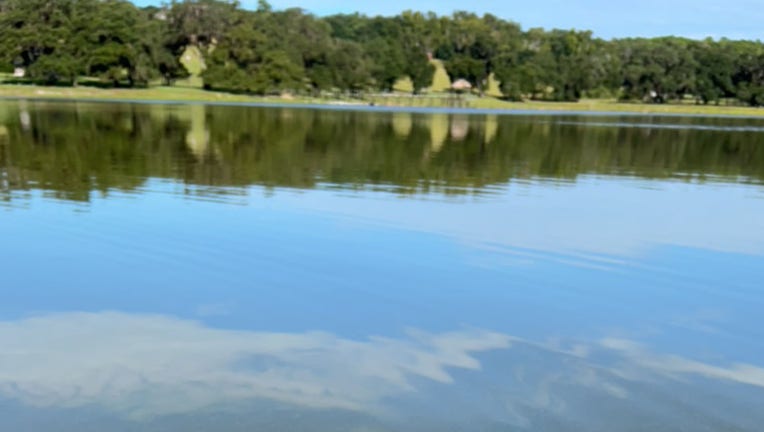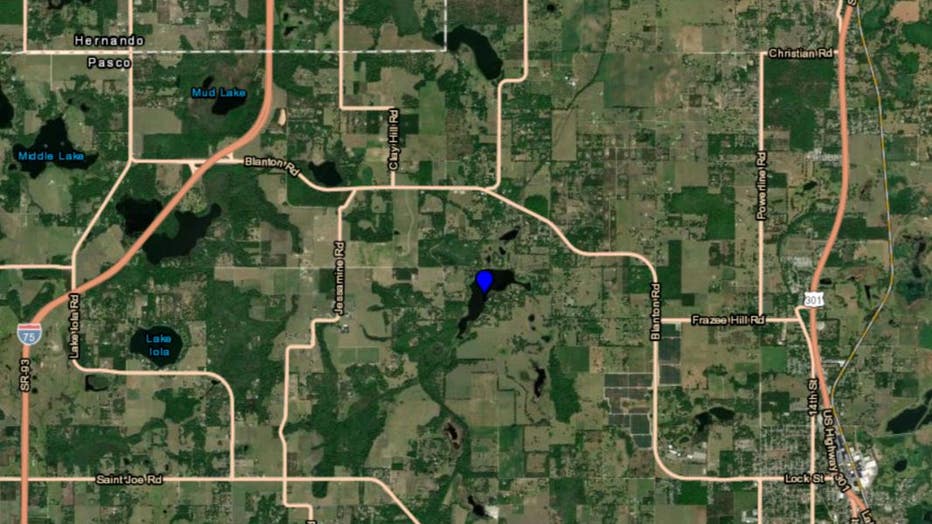Pasco County officials say harmful blue-green algal toxins in Blanton Lake

Courtesy: Florida Department of Health
PASCO COUNTY, Fla. - A water sample taken on Sept. 25 revealed that there were blue-green algal toxins in Blanton Lake, according to the Florida Department of Health in Pasco County.
The Florida Department of Health says that blue-green algae is a type of bacteria that is common in Florida’s freshwater environments. According to officials, a bloom occurs when there's rapid growth of algae that leads to the accumulation of individual cells that discolor water and often produce floating mats that emit unpleasant odors.
Environmental factors that contribute to blue-green algae blooms are sunny days, warm water temperatures, still water conditions and excess nutrients, according to experts.
READ: Trees losing leaves in Pinellas County after Hurricane Idalia
Authorities say that blooms can appear year-round but are more frequent in summer and fall and many types of blue-green algae can produce toxins.

Map of Blanton Lake. Courtesy: Florida Department of Health
Officials say the public should be cautious around the lake since blue-green algae blooms can impact human health and ecosystems, including fish and other aquatic animals. Residents and visitors are being asked to take precautions:
- Do not drink, swim, wade, use personal watercraft, water ski or boat in waters where there is a visible bloom.
- Wash your skin and clothing with soap and water if you have contact with algae or discolored or smelly water.
- Keep pets away from the area. Waters where there are algae blooms are not safe for animals. Pets and livestock should have a different source of water when algae blooms are present. Officials say to contact your veterinarian if you believe your pet has become ill after consuming or having contact with blue-green algae contaminated water.
- Do not cook or clean dishes with water contaminated by algae blooms. Boiling the water will not eliminate the toxins.
- Eating fillets from healthy fish caught in freshwater lakes experiencing blooms is safe.
- Rinse fish fillets with tap or bottled water, throw out the guts and cook fish well.
- Do not eat shellfish in waters with algae blooms.
To report a bloom to the Florida Department of Environmental Protection, you can call the toll-free hotline at 855-305-3903 or report online. To report fish kills, you can contact the Florida Fish and Wildlife Research Institute at 1-800-636-0511.
To report symptoms from exposure to a harmful algal bloom or any aquatic toxin to the Florida Poison Information Center, call 1-800-222-1222 to speak to a poison specialist immediately.
For additional information on potential health effects of algal blooms, click here. To find current information about Florida’s water quality status and public health notifications for harmful algal blooms and beach conditions, click here.

